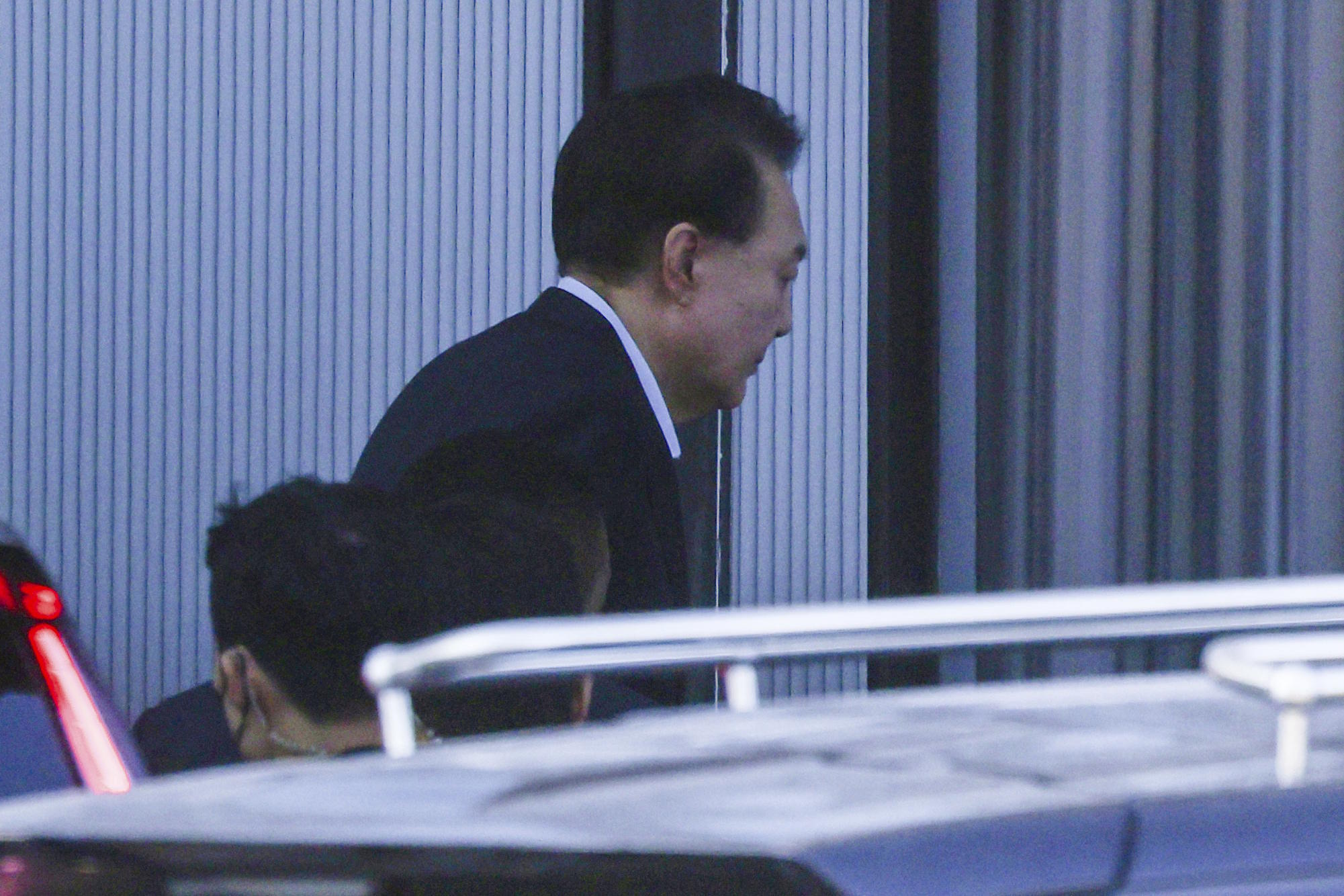The spectacle surrounding the arrest of President Yoon Suk Yeol in South Korea has come to an end. After hours of clashes with his praetorian guard of 200 bodyguards, the police, aided by several ladders, managed to enter the presidential residence, bypassing bus barricades and rows of armed men, and arrest the leader who had been suspended from his duties for attempting a coup d'état last December by declaring martial law.
Yoon (64 years old) had barricaded himself in the presidential residence protected by his security team, which refused to allow around 3,000 agents deployed to execute the arrest warrant against the besieged conservative politician. Yoon's arrest marks the culmination of nearly six weeks of an unprecedented political crisis in one of Asia's major democracies.
Since early Wednesday morning, South Korean television stations have been broadcasting images of the police and agents from the Corruption Investigation Office (CIO) trying to make their way through a crowd supporting Yoon, concentrated around the presidential residence located on a hill in Hannam-dong, one of Seoul's most exclusive neighborhoods.
In a three-minute video statement released after the arrest, Yoon appeared saying that he had agreed to appear before the anti-corruption office officials investigating him. "Although this is an illegal investigation, I agreed to appear before the CIO to prevent any bloodshed. However, this does not mean I approve of the investigation," said the detainee.
Yoon added in his statement that "the rule of law in South Korea has been broken" and that neither the investigating agencies nor the courts that issued the arrest warrants had the power to do so. The politician was taken to the CIO offices for questioning.
Investigators can now detain Yoon for up to 48 hours pending a judicial order to extend the arrest for at least another 20 days before being brought to trial after being formally charged.
In early January, anti-corruption office agents failed in their first attempt to arrest the president by being unable to breach the barrier of the Presidential Security Service (PSS), elite police forces escorts protecting him. They blocked the entrance with buses as barricades and filled the gate with barbed wire, turning Yoon's house into a fortress.
The presidential security team is tasked with protecting the country's leader, and Yoon, despite being suspended, remains the elected president, so these bodyguards considered the arrest warrant a threat to the president's security.
Police officers walk towards the official residence of ousted South Korean President Yoon Suk Yeol in Seoul on January 15.EFE
On Wednesday, viral images spread throughout Korea showing how the police deployed to arrest Yoon had managed to enter the fortified presidential residence and were climbing over buses using ladders.
After an initial clash of over two and a half hours between the presidential security and the police, the former decided to withdraw after hearing the interim president's public statement. "The execution of the presidential arrest warrant has begun. This situation is a crucial moment to maintain order and the rule of law in South Korea," stated Choi Sang-mok, the current leader.
Yoon, accused of abuse of power and insurrection, a crime punishable by life imprisonment or death penalty, was removed from power on December 14 after the impeachment voted by Parliament was successful. On Tuesday, Yoon was absent from the first hearing at the Constitutional Court of a trial in which the judges will have to decide whether to uphold the impeachment motion or reinstate the leader in office. The court has 180 days to make its decision. If the impeachment is ultimately confirmed, early presidential elections would be called within the following 60 days.
Defying the freezing temperatures of the early morning in Seoul, many Yoon supporters gathered in Hannam-dong to try to block the second arrest attempt, while the streets surrounding the area were closed off by police vehicles.
Yoon's supporters, mostly elderly voters of the ruling People Power Party (PPP), clashed with the police, claiming that the arrest warrant was a "farce." Shouts such as "Out with the Chinese Communist Party" were heard, referring to one of the conspiracy theories Yoon launched to justify his declaration of martial law: that Chinese spies had interfered in last year's parliamentary elections, where the opposition swept to victory.
"I will fight to the end," Yoon wrote earlier this month in a letter to his most loyal followers, those linked to the most nationalist and conservative faction of the PPP, including well-known extreme right-wing YouTubers and evangelical church leaders.
Many of these sympathizers, embracing the "Trump style," participate in demonstrations waving American flags, denouncing that South Korean democracy is under threat and that the press is full of "fake news" to push for Yoon's downfall. On Wednesday, a quite familiar cry among Washington Republicans was heard: "Make Korea Great Again".
The besieged leader's faithful have clashed daily in protests with impeachment supporters, who also showed up on Wednesday, many of them wrapped in thermal blankets due to the cold, around the presidential residence. "Arrest him!" they shouted.
Authorities mounted an unprecedented operation to successfully execute the arrest warrant against the president who sent armed soldiers to Parliament under a fleeting martial law and who has ignored all summons to be questioned about it. Yoon has become the first sitting president in South Korea's history to be arrested.
